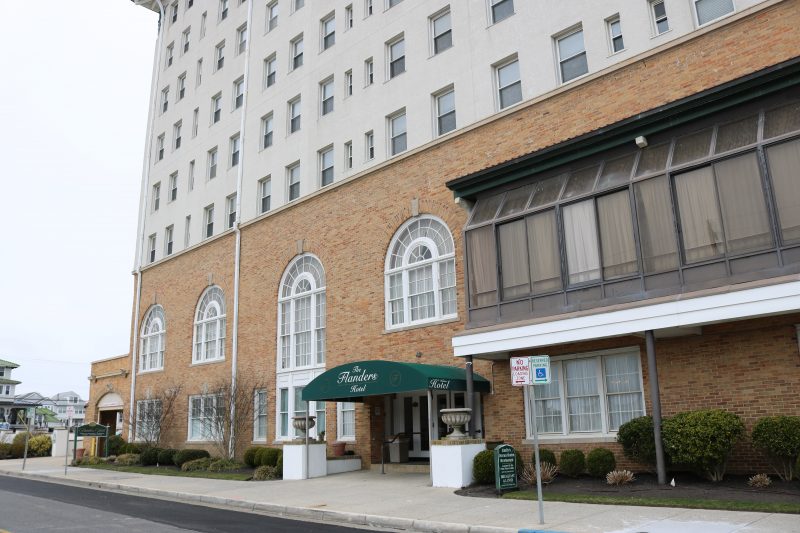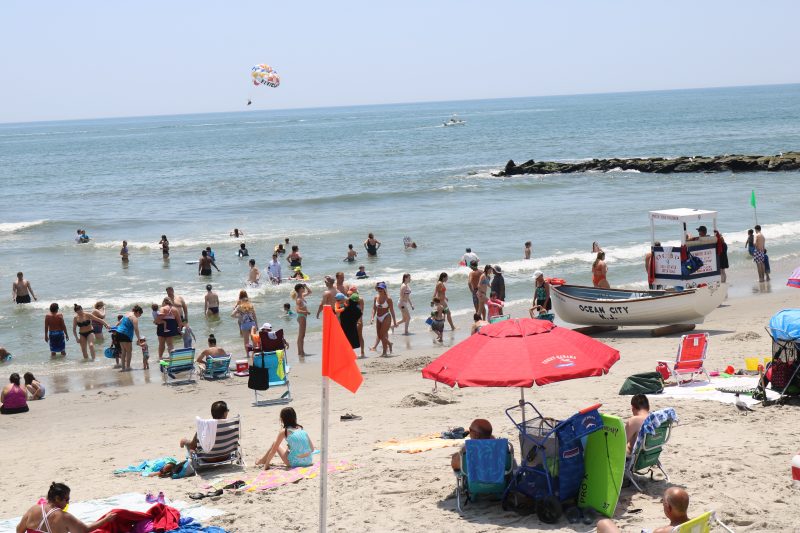
By MADDY VITALE
With a growing list of cancellations of events and gatherings across the country amid the coronavirus pandemic, the Ocean City Regional Chamber of Commerce Business Summit Thursday touched upon the potential economic impact on the coastal community.
The ultimate hope was that — whatever the impact of coronavirus — it would be for the short term and long over with before the kickoff to the summer season in May.
“Today is an important day. We know there is a lot going on in the different markets,” said Michele Gillian, executive director of the Chamber. “We will hear an update on the coronavirus from Trenton, how we are moving forward and how it looks for us.”
The guest speaker, Michele Siekerka, president and CEO of New Jersey Business & Industry Association (NJBIA), told the audience at the Flanders Hotel that the state officials are acting reserved and tempered in handling the threats.
“I think it is important we spend a few minutes on the coronavirus and how it affects the business community,” she said.
Siekerka explained that health officials are saying people should limit their exposure to very large gatherings.
“Be responsible. Some of us aren’t shaking hands or being as familiar,” she added.
But with so much uncertainty looming, she emphasized that business owners could go to the NJBIA portal for up-to-date information at www.NJBIA.org/coronavirus.
“We will be announcing gap funding for small businesses,” she told the business owners. “If people aren’t frequenting your small business or establishments — we know the devastating impact.”

In addition, Siekerka said employers should be aware of wage and hourly wage losses, due to a lack of business.
If hours are limited, there are opportunities for unemployment or temporary disability if a person is diagnosed with the coronavirus, she said.
Siekerka offered some safety tips to employers and employees.
“Another best practice is the ability to work remotely. Anything you can do electronically and also to have a contingency plan to get the products and services to you,” she said.
“We are all taking an overabundance of caution. I want to commend government for their approach on this,” Siekerka added. “They have been very reserved. It is a very tempered message out there. They are not out there causing panic. This is real, what is going on.”
She offered this piece of advice to the audience of business owners: “Let’s be responsible. Make sure you are connected to what you need for yourself, your business, your employees and your community.”
Siekerka, a lobbyist for small business, also explained that the NJBIA is seeking to help small businesses cope with the new $15 minimum wage law requirements, as well as the paid leave law that is also now in effect.
“Mandates are challenging, especially along the shoreline,” Siekerka noted.
Since last year, there have been six chamber of commerce organizations along the coast that are working with NJBIA on the issue of workforce and seasonal tourism.
She explained the importance of using an “economic off-ramp” to suspend minimum wage increases in a severe recession, providing tax credits to businesses with 10 or fewer employees, and a requirement to study the impact of the minimum wage increase on the economy.
She discussed a bill that would provide tax credits to employers who hire workers under 18 years old.
The bill is one of several measures NJBIA is advocating for to help mitigate the negative effects of the minimum wage increase, she said.
“We have a great location. We have 140 miles of shoreline like nobody else. And we have a tourism industry,” Siekerka said. “We have to support it to make sure it continues to thrive in the state of New Jersey.”







